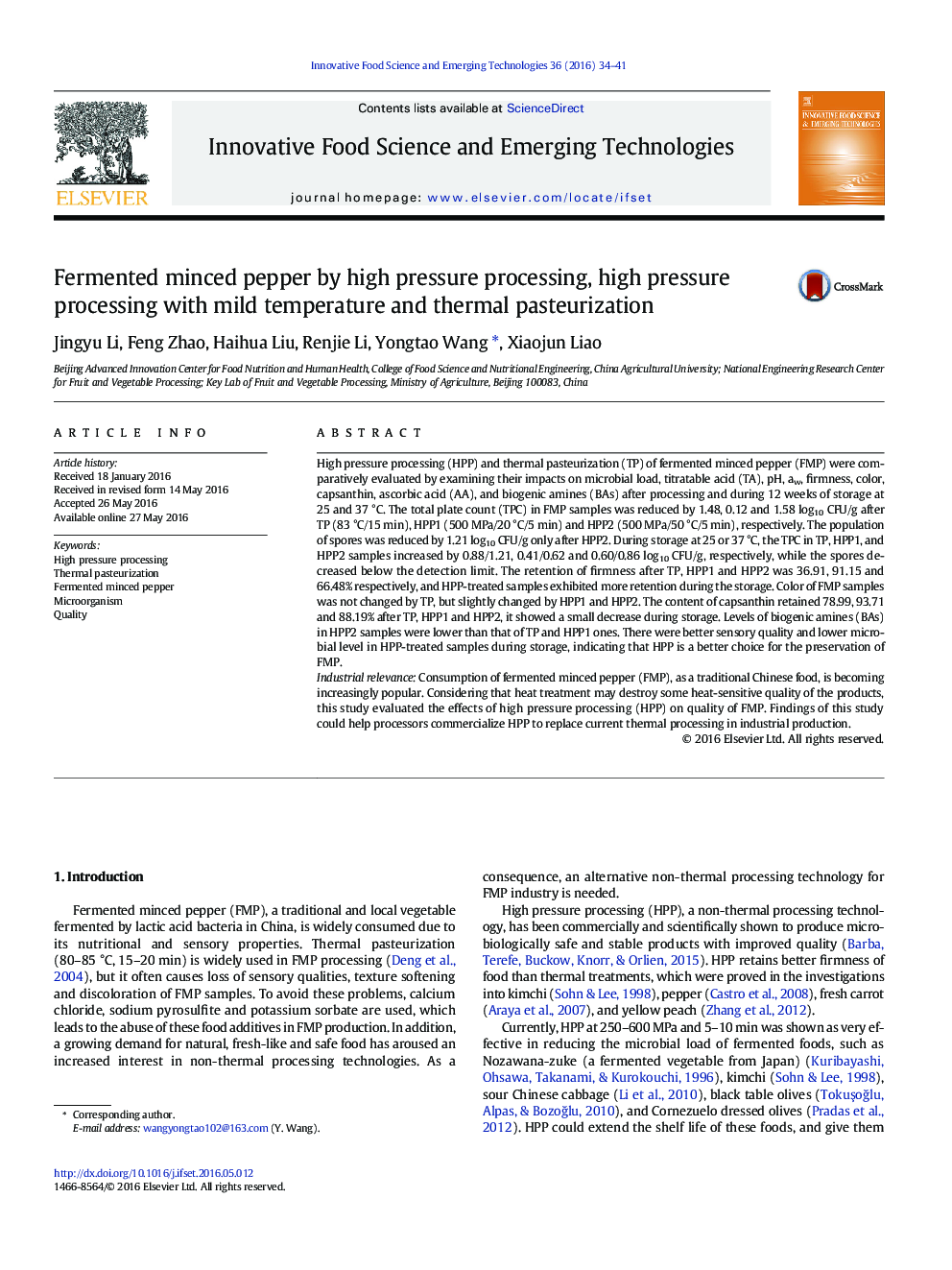| کد مقاله | کد نشریه | سال انتشار | مقاله انگلیسی | نسخه تمام متن |
|---|---|---|---|---|
| 2086311 | 1545530 | 2016 | 8 صفحه PDF | دانلود رایگان |
• Microbial load and quality of fermented minced pepper (FMP) was evaluated after high pressure processing (HPP).
• HPP at 50 °C could effectively reduce the microorganisms.
• The higher retention of firmness in HPP-treated FMP was found.
High pressure processing (HPP) and thermal pasteurization (TP) of fermented minced pepper (FMP) were comparatively evaluated by examining their impacts on microbial load, titratable acid (TA), pH, aw, firmness, color, capsanthin, ascorbic acid (AA), and biogenic amines (BAs) after processing and during 12 weeks of storage at 25 and 37 °C. The total plate count (TPC) in FMP samples was reduced by 1.48, 0.12 and 1.58 log10 CFU/g after TP (83 °C/15 min), HPP1 (500 MPa/20 °C/5 min) and HPP2 (500 MPa/50 °C/5 min), respectively. The population of spores was reduced by 1.21 log10 CFU/g only after HPP2. During storage at 25 or 37 °C, the TPC in TP, HPP1, and HPP2 samples increased by 0.88/1.21, 0.41/0.62 and 0.60/0.86 log10 CFU/g, respectively, while the spores decreased below the detection limit. The retention of firmness after TP, HPP1 and HPP2 was 36.91, 91.15 and 66.48% respectively, and HPP-treated samples exhibited more retention during the storage. Color of FMP samples was not changed by TP, but slightly changed by HPP1 and HPP2. The content of capsanthin retained 78.99, 93.71 and 88.19% after TP, HPP1 and HPP2, it showed a small decrease during storage. Levels of biogenic amines (BAs) in HPP2 samples were lower than that of TP and HPP1 ones. There were better sensory quality and lower microbial level in HPP-treated samples during storage, indicating that HPP is a better choice for the preservation of FMP.Industrial relevanceConsumption of fermented minced pepper (FMP), as a traditional Chinese food, is becoming increasingly popular. Considering that heat treatment may destroy some heat-sensitive quality of the products, this study evaluated the effects of high pressure processing (HPP) on quality of FMP. Findings of this study could help processors commercialize HPP to replace current thermal processing in industrial production.
Journal: Innovative Food Science & Emerging Technologies - Volume 36, August 2016, Pages 34–41
